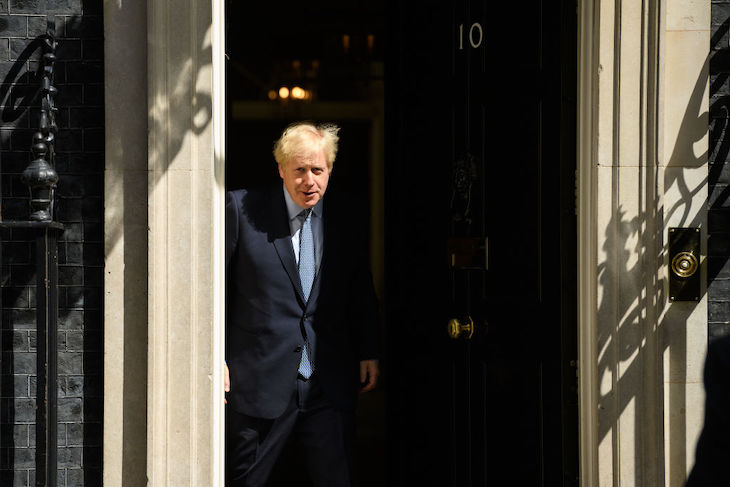Constitutional government relies on a series of shared understandings, and those with differing political objectives being willing to act in accordance with agreed practice. The high tempers of the Brexit process have certainly put pressure on these understandings and on that willingness.
From the Cooper-Letwin episode to the Benn Act, too many parliamentarians have, unfortunately, proved themselves willing – with help from the Speaker – to override constitutional norms. And so we find ourselves in an extraordinary state of affairs in which the House of Commons does not in substance have confidence in the government and yet is unwilling to formally withdraw confidence or bring about an early election.
The government’s dependence on the confidence of the House of Commons is fundamental to our parliamentary democracy and tradition. In times gone by when confidence was withdrawn, dissolution would follow, which would return a new House of Commons, which might either support the existing government or some alternative ministry.
The Fixed-term Parliaments Act 2011 has complicated matters. How exactly? Specifically the Act is unclear if, when the government loses a vote of no confidence, the Prime Minister is obliged to resign to allow an alternative government to take over, or if he can remain in office during the 14-day statutory period after the vote and trigger an early election himself.
This is a question of utmost constitutional and political importance. It is answered authoritatively in a new paper published today by Policy Exchange, written by Sir Stephen Laws, a former First Parliamentary Counsel, responsible in his time for the management of government business in both Houses of Parliament and for constitutional advice to the heart of government. I was fortunate enough to be able to draw on his immense experience and expertise in my review of secondary legislation and the primacy of the House of Commons in 2015. There is no better person to address the legal meaning of the Fixed-term Parliaments Act or to think through its wider implications.
Sir Stephen’s paper makes clear that Parliament in 2011 made a deliberate choice not to legislate about what should happen during the 14-day period after the Government loses a vote of no-confidence. That was certainly my understanding of the Bill when it was moved through the House of Lords, an understanding very widely shared. While the legal effect of the Act is clear and limited, Sir Stephen argues powerfully that the political and constitutional questions to which it gives rise are open-ended and contested and that all of us should be sceptical about assertions to the contrary.
The significance of Sir Stephen’s analysis is that it is a mistake, or a self-serving political move, to insist now that the Prime Minister has always been constitutionally – let alone legally – obliged to resign if he loses a no-confidence vote. Quite what should happen when it is lost is a matter of political controversy, informed by established constitutional principles and practice.
It is open to the Prime Minister to argue that in the present political circumstances, in which there is no prospect of a government enduring for the full five-year parliamentary term, he should stay in post after a vote of no confidence. An early election is inevitable, even if its exact timing is uncertain, and the Prime Minister might refuse to resign during the 14 days after a vote of no confidence in order to secure one. The merits of his actions would then be for the electorate to judge in the forthcoming election.
The last three years suggest that many parliamentarians and other participants in public life are willing to invite the courts to intervene into political controversies in their favour. Some have already been discussing further political litigation if the government loses a vote of no confidence. Sir Stephen makes an utterly convincing case that it would be illegitimate for the courts to attempt to enforce their view of constitutional practice by ordering the Prime Minister to resign or attempting to quash the dissolution of parliament.
Not only would such intervention be likely to intensify the UK’s political crisis, by preventing the election that is clearly necessary, it would also run counter to the intentions of Parliament in enacting the Fixed-term Parliaments Act in 2011. It should not be contemplated by any responsible parliamentarian or friend of our constitution.
Perhaps even more worrying than recourse to the courts, attempts are clearly afoot to put pressure on Her Majesty to intervene to dismiss the Prime Minister. Sir Stephen rightly decries these attempts. I entirely agree with him. As his paper makes clear, it is the responsibility of politicians to avoid implicating the Sovereign in political controversy: the proposals that have been floated to force Her hand flout this fundamental limitation.
The political crisis in which the UK finds itself has been worsened by the abuse of constitutional practice, very often by those proclaiming to be the constitution’s true defenders. The next episode may be an attempt to weaponise the Fixed-term Parliaments Act, giving it a legal meaning it cannot bear and asserting implications for constitutional practice that are at best contestable and at worst pernicious. This constitutional sophistry needs to be confronted.
Lord Strathclyde CH is a former Leader of the House of Lords






Comments